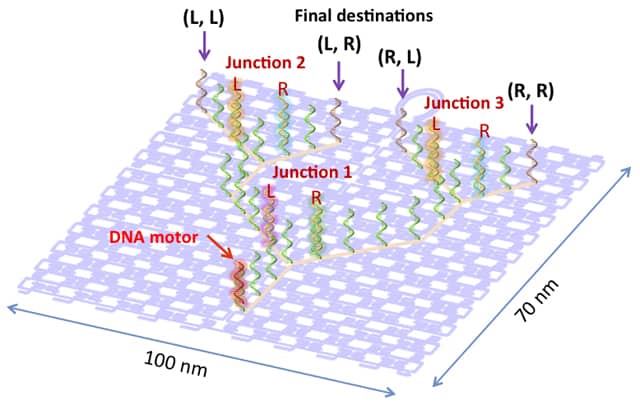Scientists at Kyoto University and the University of Oxford have combined DNA origami and DNA motors to take another step toward programmed artificial molecular assembly lines.
DNA motor navigates network of DNA tracks


Scientists at Kyoto University and the University of Oxford have combined DNA origami and DNA motors to take another step toward programmed artificial molecular assembly lines.
Two competing companies have introduced 3D printers for the personal manufacture of complex digitally-designed plastic consumer items. Will this start a trend toward personal digital manufacture of increasingly complex items?
A National Academy of Sciences panel has recommended a four-part research effort focused on preventing and managing any potential health and environmental risks of nanomaterials.
Foldit game players have again out-performed scientists in protein design, this time improving the design of a protein designed from scratch to catalyze Diels-Alder cycloadditions.
Human life after advanced nanotechnology has been developed will be fundamentally different from life up until that point.
An array of 96 iron atoms on a copper nitride surface, assembled using an STM and used to write a byte, demonstrates how small magnetic storage could shrink and may lead to novel nanomaterials for quantum computers.
An article in The Guardian quotes Christine Peterson and Robert Freitas on the vision of molecular manufacturing. Freitas is quoted as expecting that the development of nanofactories could be done in 20 years for “on the order of” one billion dollars.
The first Master’s of Science in Nanomedicine degree program in US is announced. As an example of the rapidly developing potential of nanomedicine, a novel type of nanoparticle succeeded in two different mouse models in destroying a type of brain cancer that had previously been completely resistant to all treatment attempts.